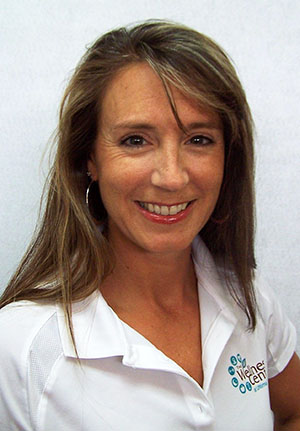By Lynette Laufenberg
During the month of February, American’s thoughts turn to our hearts. In addition to Valentine’s Day, February is American Heart Month, and it is important that you focus on caring for your heart, both physically and emotionally.
Cardiovascular disease (CVD) — including heart disease, stroke and high blood pressure — is the No. 1 killer of men and women in the United States. It is a leading cause of disability, preventing Americans from working and enjoying family activities. CVD costs the U.S. more than $300 billion each year, including the cost of healthcare services, medications and lost productivity.
Men are more than twice as likely as women to die from preventable CVD. Many CVD deaths could have been prevented through healthier habits, healthier living spaces and better management of conditions like high blood pressure and diabetes.
Although some risk factors are out of your control, such as race and gender, you can control a number of risk factors for CVD, including: diet, physical activity, tobacco use, obesity, high blood pressure, high blood cholesterol and diabetes.
Make a Plan for Prevention — As you begin your journey toward improved wellness, try out these strategies for better heart health:
• Work with your healthcare team. Get a checkup at least once each year, even if you feel healthy.
• Monitor your blood pressure. There are often no symptoms, so be sure to have it checked on a regular basis.
• Get your cholesterol checked. You should have your cholesterol levels tested at least once every five years.
• Eat a healthy diet. Choosing healthful meal and snack options can help you avoid CVD and its complications.
• Maintain a healthy weight. Being overweight or obese can increase your risk for CVD. See one of our certified fitness professionals to calculate your Body Mass Index (BMI) or Body Composition.
• Exercise regularly. Physical activity can help you maintain a healthy weight and lower cholesterol and blood pressure. It is recommended that adults engage in moderate-intensity activity for at least 150 minutes/week.
• Don’t smoke. Cigarette smoking greatly increases your risk for CVD, so quit now!
• Limit alcohol use. Avoid drinking too much alcohol, which can increase your blood pressure.
• Manage your diabetes. If you have diabetes, monitor your blood sugar levels closely, and talk with your healthcare team about treatment options.
• Take your medicine. If you’re taking medication to treat high blood pressure, high cholesterol, diabetes or another condition, follow the instructions carefully. As you incorporate any of the above healthy habits, eventually you may be able to lower your dosage of medication, or even better, eliminate it.
Caring for our Emotional Heart — Along with taking charge of our physical well-being, we must not forget the importance of caring for our emotional self. Stress management and behavior modification are two very important elements to living a fulfilled life. It is up to you to take charge of your emotional well-being and learn to be content in the “here and now.” Without managing our stress levels, the physical toll stress will eventually take on our bodies may be irreversible.
Why not try some of these ideas to help ease your stress and find contentment in your everyday life?
• Positive self-talk.
• Do something you love on a daily basis — reading, coffee with a friend, listening to music, taking a walk outside.
• Daily relaxation — practice yoga, tai chi or meditation.
• Eliminate the “negotiable” from your to-do list.
Most importantly, do not feel overwhelmed. Take baby steps, embrace the changes you are trying hard to implement, and honor your body. Little by little, all of your efforts will start to pay off and you will feel proud to look back and see the progress you have made!
Lynette Laufenberg is wellness center director at Ultima Fitness in Wellington. Ultima is located at 12799 W. Forest Hill Blvd. in Wellington. For more information, call (561) 795-2823 or visit www.ultimafitness.com.








